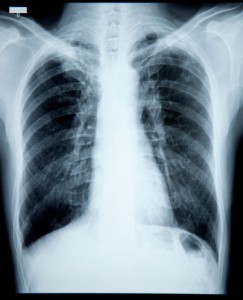 In New York and New Jersey, workers’ compensation benefits may be available to those who suffer from occupational illnesses.
In New York and New Jersey, workers’ compensation benefits may be available to those who suffer from occupational illnesses.
The American Academy of Family Physicians defines occupational illnesses as conditions that are caused or worsened by exposures or stressors in the workplace. Many occupational diseases are the cumulative effect of stress or exposure, meaning they develop over time.
When an ill worker needs medical treatment or misses work because of a work-related disease, the worker may be entitled to workers’ compensation benefits.
Workplace Exposures and Conditions that Can Cause Diseases
The National Institute of Occupational Safety and Health (NIOSH) explains that occupational disease and injury develop when a worker is exposed to some kind of harmful substance and the body reacts negatively to it.
Potential hazards that may cause an occupational disease include:
- Chemical agents, including particulates, gases, vapors, liquids and combined forms of these agents.
- Biological agents, ranging from germs and other microorganisms to insects and other animals.
- Mechanical energy associated with labor (stress, strain, etc.).
- Extreme temperatures and humidity.
- Radiant energy (electrical heat, radiation, etc.).
NIOSH says occupational diseases may be contracted by inhalation, ingestion, transcutaneous transport (through the skin), irradiation and “information exchange,” the latter being a cause of mental illness, which may also be compensable under workers’ compensation.
Common occupational diseases include:
- Asthma. Work-related asthma accounts for at least 10 percent of all cases of adult asthma, the American Academy of Family Physicians (AAFP) says.
- Asbestos-related lung disease. The inhalation of asbestos fibers in the workplace may lead to a number of respiratory diseases, including lung cancer, asbestosis, pleural plaques, benign pleural effusion and malignant mesothelioma.
- Cancer caused by exposure to such toxic agents as asbestos, benzidine, benzene, bis-chloromethyl ether (BCME), chromium VI compounds, vinyl chloride, arsenic, beryllium, cadmium, erionite, ethylene oxide and others.
- Eye disease. More than 65,000 work-related eye injuries and illnesses are reported in the United States each year. The AAFP says work-related allergic conjunctivitis increasingly has been recognized among food handlers and agriculture workers exposed to common spices, fruits and vegetables. The lasers increasingly used in industry and medical settings can cause cataracts.
- Lead poisoning. Occupational lead overexposure and lead poisoning in the United States remains a serious problem, despite awareness of its adverse health effects, the AAFP says. Lead poisoning can cause irreversible health effects, such as hypotension, central nervous system problems, anemia and hearing loss.
- Mental and behavioral disorders, including post-traumatic stress disorder (PTSD), which can occur after being involved in or witnessing a catastrophic event at a jobsite.
- Musculoskeletal disorders caused by repetitive movements, forceful exertions and extreme postures (bending, stooping, twisting), including carpal tunnel syndrome and bursitis.
- Respiratory diseases, including pneumoconioses caused by inhaling fibrogenic mineral dust, and chronic obstructive pulmonary disease (COPD) caused by inhaling wood, paper, grain, animal or textile dusts.
- Viruses, including hepatitis B virus (HBV) and hepatitis C virus (HCV).
Many of these diseases develop over time from repeated exposure to the agents, conditions or activities in the workplace that caused them. Workers’ compensation claimants must show that their disease was in fact caused by their work.
Because occupational diseases are not as clear-cut as workplace accidents, an employer may be more likely to challenge a workers’ compensation claim based on an occupational disease or illness.
An experienced attorney from the Ginarte Law Firm can help you develop a workers’ compensation claim or appeal that thoroughly examines the relationship between your disease and your job.
You must see the doctor your employer directs you to, but you may also get a second opinion. A second opinion should include a proper work history, along with a medical diagnosis, for example, and an evaluation of any potential association between your disease symptoms and work duties.
The Ginarte Law Firm can provide you with professional, experienced representation that works to build a case in your favor. Our attorneys have more than 150 years of combined experience with claims arising from workplace illnesses. We understand how the New York and New Jersey workers’ compensation systems work.
Get Help with Your Occupational Disease Claim Today
A lawyer with the Ginarte Law Firm can help you obtain the benefits you deserve if you suffer from a job-related illness. We’ll make sure your case is properly assessed by medical personnel and properly presented to workers’ compensation authorities.
Sources:
- American Family Physician – Work-Related Asthma
- NIOSH – Occupational Diseases Instructional Module
- International Labour Organization – ILO List of Occupational Diseases
